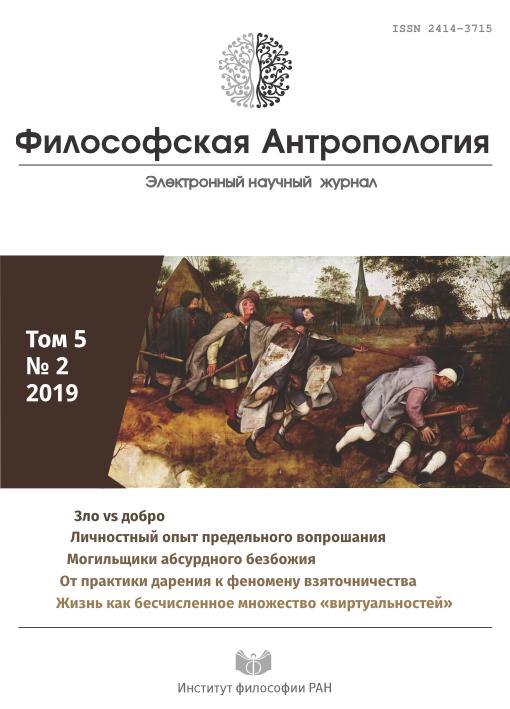Эпистемология и логика в индийской философии
DOI:
https://doi.org/10.21146/2414-3715-2019-5-2-157-191Ключевые слова:
анумана, апохавада, восприятие, выводное знание, вьявахара, индийская эпистемология и логика, истина, прамана, праманавада, сатьяАннотация
Публикация представляет обзор содержания специальной дисциплины праманавады (учения об инструментах достоверного познания), сформировавшейся в индийских системах мировоззренческого знания — даршанах. Обзор начинается с установления сходств праманавады с западными эпистемологией и логикой, определения её структуры и небольшого экскурса в историю её формирования; отмечается влияние грамматики Панини (IV в. до н.э.) на выбор концептуального каркаса дисциплины Акшападой (III–IV вв.). Структура праманавады определена на основе «Ньяя-сутр» Акшапады, сочинений буддиста Дигнаги (ок. 450–520 гг.) и джайнских канонических сочинений Умасвати (II–III вв.) и Кундакунды (III–IV вв.); содержание логико-эпистемологических концептов раскрывается по базовым сочинениям восьми даршан.
Автор обращает внимание на роль концепта вьявахара (конвенциональное словоупотребление и повседневная практика), повлиявшего на специфику критического дискурса в Индии, описывает характерные для индийской традиции философствования представления о лингвистической референции. Содержание базовых концепций праманавады (субъект познания, познающее сознание, воспринимающие способности, сверхъестественные познавательные способности, идеалы познания, цель познания, истина, повседневная практика, инструменты достоверного познания, вывод у найяиков и буддистов, «точки зрения» джайнов, теория полемики) раскрывается через их сопоставление с западными логико-эпистемологическими идеями. Специфика праманавады усматривается наряду со своеобразием решения теоретических проблем в отсутствии символического языка для анализа рассуждений, в наличии особого формализма (закрепления традиционных способов ведения полемики) и в сохранении ограниченной свободы критического дискурса в формализованном скептицизме.

